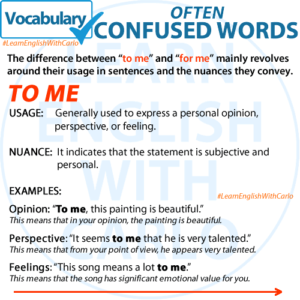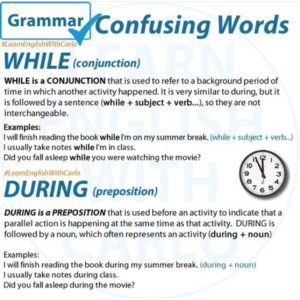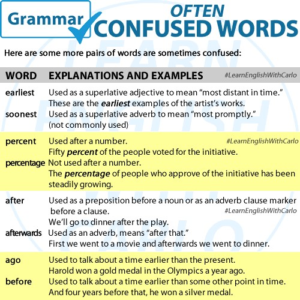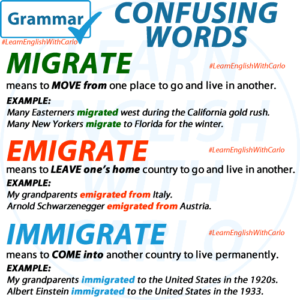The difference between “to me” and “for me” mainly revolves around their usage in sentences and the nuances they convey. Here’s a breakdown: “To me” Examples: “For me” Examples: Comparing the Two Combined Use Sometimes, sentences can use both “to me” and “for me,” emphasizing different aspects: Understanding the difference between “to me” and “for …
Category: CONFUSING WORDS
Permanent link to this article: https://englishyourway.com.br/difference-between-to-me-and-for-me/
Jun 23
The Difference Between “WHILE” & “DURING”
As an English learner, you may have noticed that both “while” and “during” are used to talk about time. However, they are used differently in sentences, and understanding how to use them correctly can make your English more accurate and natural. Let’s break down the key differences between these two words. 1. “WHILE” Usage:“While” is …
Permanent link to this article: https://englishyourway.com.br/difference-between-while-and-during-esl/
Jun 20
CONFUSING WORDS – Accept vs. Except
“Accept” and “except” are two commonly confused words in English due to their similar pronunciation, but they have different meanings and uses. Accept Definition: To receive or agree to something willingly. Part of Speech: Verb Examples: Usage: Use “accept” when talking about agreeing to take something that is offered or recognizing something as true. Except …
Permanent link to this article: https://englishyourway.com.br/accept-vs-except/
Apr 22
Understanding SO, SUCH, and TOO in English
The words so, such, and too are often confused by English learners because they all express emphasis or intensity. However, they follow different grammatical patterns and are used in distinct ways. Let’s break it down with examples and explanations. 1. SO So is used with adjectives and adverbs to indicate a high degree, often followed …
Permanent link to this article: https://englishyourway.com.br/using-so-such-too-in-english/
Mar 13
CONFUSING WORDS: Speak vs. Talk
SPEAK and TALK are almost synonymous and are generally interchangeable except in fixed expressions. Remember that the verb speak tends to be used in more formal or one-sided situations. Unfortunately, there is no simple or easy rule to follow. But there are a number of fixed expressions for both verbs. Always use SPEAK in these …
Permanent link to this article: https://englishyourway.com.br/confusing-words-speak-vs-talk/
Jan 29
Commonly Confused Words
There are a lot of words in English that look or sound the same but have very different meanings, such as accept and except or affect and effect. Here’s a quick-reference list of pairs of words that sometimes cause people problems. Word 1 Meaning Word 2 Meaning accept agree to receive or do; believe except …
Permanent link to this article: https://englishyourway.com.br/commonly-confused-words-a-comprehensive-list/
Nov 12
Mastering the Differences: Below, Beneath, Underneath, and Under
The English language often offers several words to convey similar meanings, each with subtle distinctions that can add depth to our communication. Words like below, beneath, underneath, and under all suggest a lower position, but each carries its unique nuance. In this post, we’ll explore these differences with clear definitions, examples, and usage tips. 1. …
Permanent link to this article: https://englishyourway.com.br/mastering-the-differences-below-beneath-underneath-and-under/
Permanent link to this article: https://englishyourway.com.br/grammar-more-confusing-words/
Permanent link to this article: https://englishyourway.com.br/grammar-migrate-vs-emigrate-vs-immigrate/
Permanent link to this article: https://englishyourway.com.br/whats-the-difference-work-vs-job/










